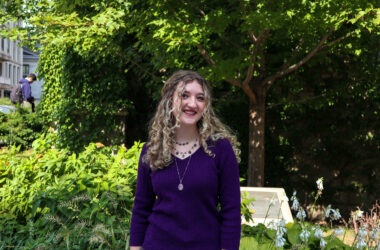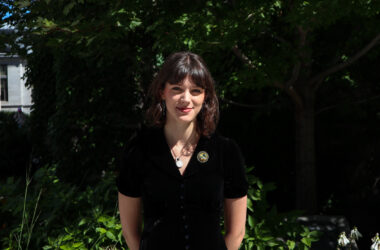McGill is a large school teeming with spaces to get involved. Finding your niche as a freshman is daunting, and, even then, being involved can come to feel like a burden. Students must often juggle their coursework with extracurricular activities, social commitments, volunteering, and athletics. Students who are incredibly engaged may feel lonely and disconnected. Those who are introverted, such as myself, often feel exhausted by the standards of involvement—these expectations are not written on paper, and are not part of the requirements for graduation. Instead, the expectation to be busy is gradually and imperceptibly ingrained in the behaviour and attitudes of McGill students.
Being busy is glorified at McGill. Resume builders abound. Being busy is seen as the height of accomplishment. It means that you are excelling at being an overachiever, and are somehow managing to do it all. But, doing it all, as author and COO of Facebook Sheryl Sandberg writes in her essay "The Myth of Doing It All", is a myth: It just isn’t possible. When friends and family describe me as being busy, I often shy away from the word. I’ve been described as “busy” so frequently that I have come to subconsciously dissociate from it. Time is limited; attempting to fill time just for the sake of it is an easy way to lose motivation and sleep.
Often, my anxieties come not from being overwhelmed by all that I have to do, but from feeling that I have not struck a perfect balance between work, school, and life. Such a balance is not elusive—it is fictional. The impossibility of perfect balance causes personal insecurities to rise. I procrastinate too much. I don’t spend enough time with my friends. I spend either too much or too little time in the library. When my peers ask me how I manage to do it all, it brings this sense of imbalance into sharp relief.
It’s impossible to fill every hour of consciousness to the highest potential. There aren’t enough hours in the day. Without quiet moments of solitude, the prospect of burnout increases. Lack of sleep, high workloads, missing a few meals, or not eating healthy all contribute to burning out. Often, I find myself wrapped up in blankets with a cup of tea watching mind-numbing videos online or re-reading a favourite novel. Taking moments like these shouldn’t feel illicit. But, the expectation to be in a constant state of doing causes many to put personal well-being on the backburner.
The concept of “busy” is a sticking point. It attempts to define my life as an engaged student while eliding the variety of learning opportunities that I have had during my time at McGill. When peers describe me as busy—or even, when I catch myself saying that I am “too busy” to do something—it reinforces the anxiety of trying to do it all. The intent might be sincere, but the effect is self-doubt, bringing my insecurities into focus.
I do what I can to keep my head above water while juggling multiple expectations and responsibilities. I don’t always succeed. When I would have criticized myself as being lazy—for having failed to exercise a few times a week, for having bought dinner out rather than organizing my meal plan for the week, for not getting away from campus enough—I have learned to ease up. The drive to be highly productive with one’s time is seemingly inescapable, but recognizing that no one manages their time perfectly helps to alleviate the stresses that come with being busy. The hope is that when we all look back on our time at McGill, we remember it as being fulfilling, rather than simply busy.







